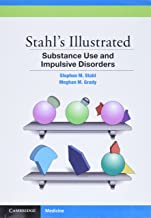Substance-Related Disorder
A chronic disease characterized by uncontrolled drinking and preoccupation Excessive use of psychoactive drugs, such as alcohol, pain medications, or illegal drugs. It can lead to physical, social, or emotional harm.
Cluster Number:
Wiki Number: PW215
Diagnosis: Substance-Related Disorder
US Patients: 7% of adults; 5% for alcohol; 2% for other drugs; 72,000 deaths from drug overdoses in 2017; 88,000 alcohol&480,000 tobacco deaths
World Patients: 2017-271 million (5.5% of adults) have used illicit drugs and 35 million, have an use disorder; 585,000 drug-deaths
Sex Ratio: Alcohol-only disorder 237 million men and 46 million women; 3 million alcohol-related deaths.
Age Onset: Children have 2X substance use disorders if parents hae them vs. parents without them.
Brain Area:
Symptoms: persistent use despite harm and adverse consequences: alcohol, caffeine, pot, phencyclidine, hallucinogens, inhalants, opioids, etc
Progression: can be mild, moderate or severe damage
Causes:
Medications: detox; FDA has 2 for alcohol and opioid use; none for the cocaine, methamphetamine or other substance use disorders
Therapies:

